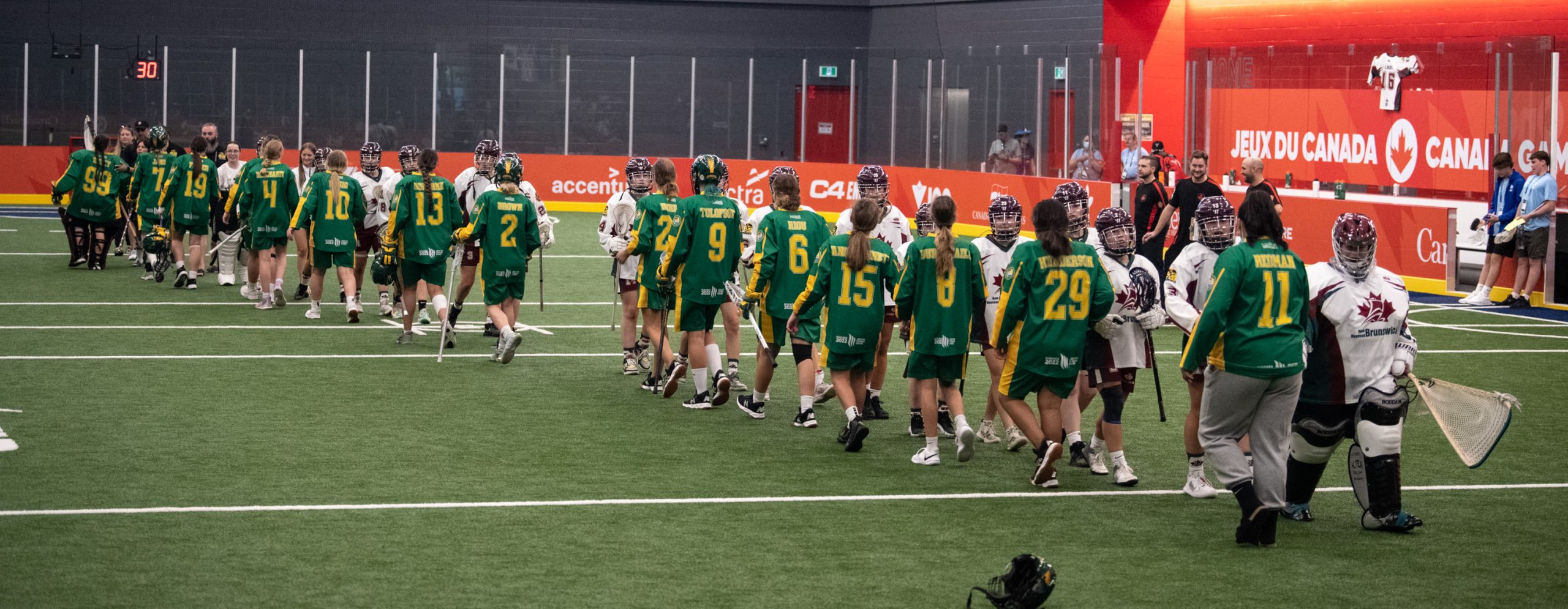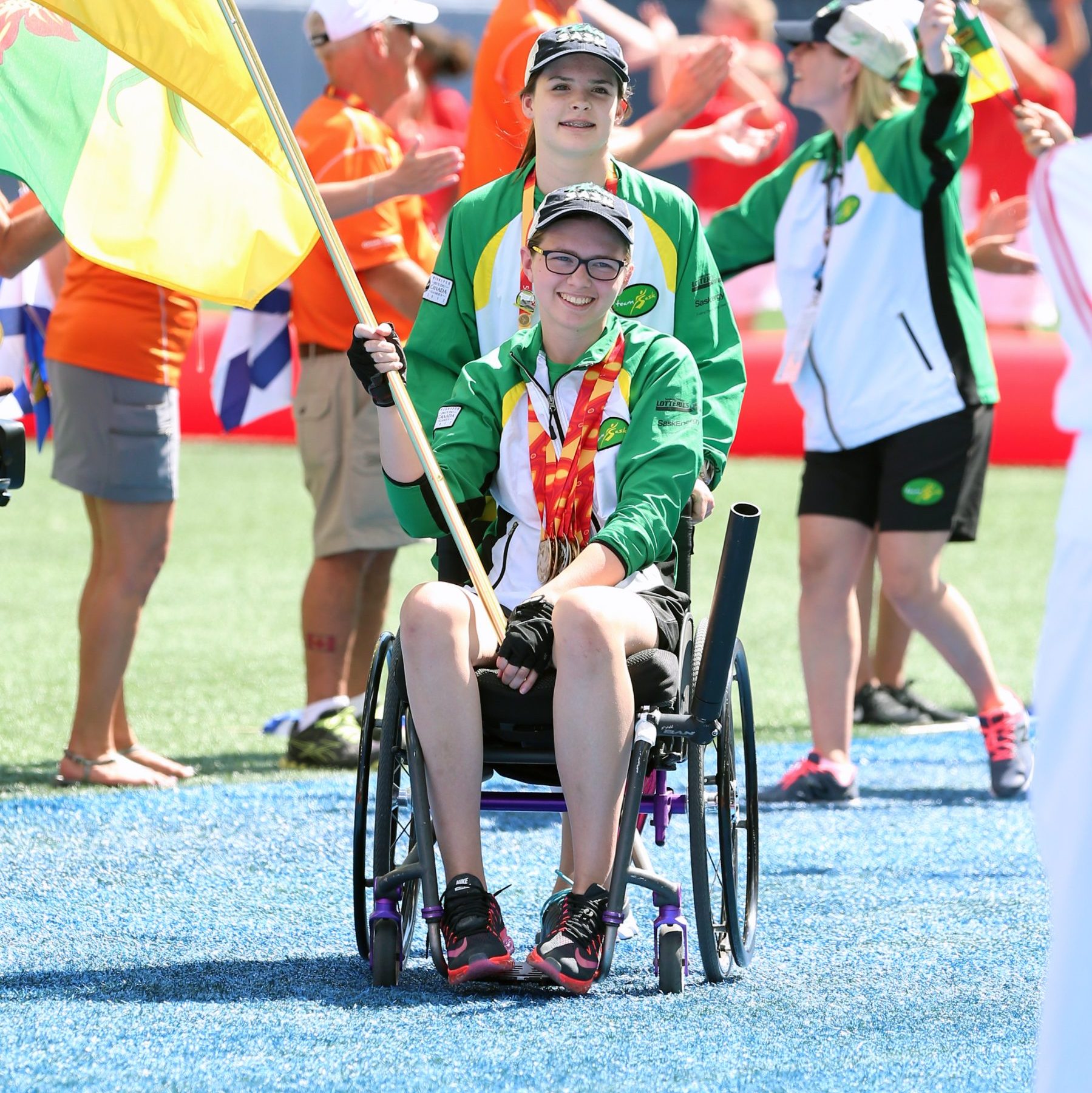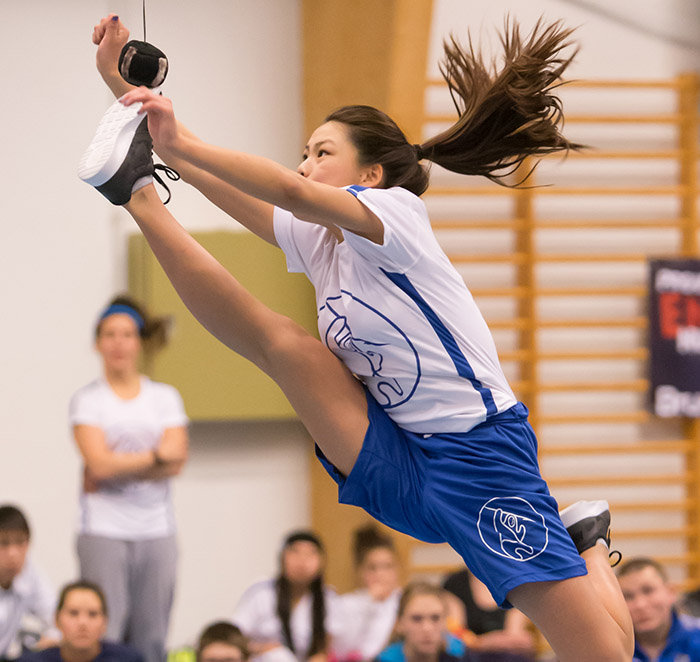Introduction
The Canadian Sport Policy 2025-2035 charts the course for sport in Canada. It is the third generation of a pan-Canadian sport policy and the product of comprehensive coast-to-coast-to-coast engagement with the people and communities of Canada.
The purpose of this Policy is to guide and inspire everyone to work together to create sport environments that focus on people, reflect shared values, and enhance the health and culture of Canada and its communities.
At the heart of this Policy is the idea that everyone has the chance to participate in sport in a way that is positive, safe and personally meaningful. This means that everyone, regardless of their role in sport has access to inclusive and welcoming environments. Sport offers opportunities for growth and enjoyment. It should be designed to meet the needs of each participant while respecting the diversity of individuals and communities.
The Policy sets the direction for the period 2025-2035 for all governments, institutions, and organizations that are committed to working together toward a shared vision for sport in Canada.
Defining sport
As a means of physical activity, recreation and/or a full-time competitive endeavour, sport offers unique goals and contexts that enable Canadians and their communities to prosper, improve their health and wellbeing and enhance social connections. Whether casual or organized, participating in sport integrates aspects of physical fitness, mental performance, skill-development, social relationships and for many, a connection to community and culture.
Around the world, sport can be and is defined differently, often based on current trends, priorities of governments, impacts of societal norms and other factors. It is also important to understand that sport can be represented in many forms, be it informal or organized, competitive or recreational. This variability means that governments may each have definitions of sport that align with their programs, priorities, supports, services and needs. These definitions will often, but not always incorporate some of the following aspects:
- Sport often has a component of skill development
- Sport tends to involve more complex physical movements
- Sport often involves an aspect of competition
- Sport can occur alone but often involves one or more persons
- Sport often involves working with a team to achieve a common goal
- Sport tends to have rules and regulations
- Sport can be a job, a pastime or a passion
- Sport can provide traditional experiences
- Sport should be FUN!

A new era for sport in Canada
The Canadian Sport Policy 2025-2035 seeks to build on past efforts and address current challenges to create a more inclusive, equitable and vibrant sport environment for all people in Canada. It will build on the two previous sport policies: 2002-2012 and 2012-2022.
The 2002 Canadian Sport Policy focused on four key tenets: enhanced participation, enhanced excellence, enhanced capacity, and enhanced interaction. A 2010 evaluation determined that three out of four goals were achieved, but the goal of enhancing participation was not. This assessment was based on a goal of having a significantly higher proportion of Canadians involved in activities at all levels and in all forms of participation.
The vision for the 2012 Canadian Sport Policy was “a dynamic and innovative culture that promotes and celebrates participation and excellence in sport.” Evaluation of the 2012 Canadian Sport Policy determined that the policy had broadly supported and enhanced sport culture in Canada, but as with the 2002 policy, participation remained an area of weakness. A 2021 evaluation identified some of the many challenges to increasing participation in sport and made recommendations for future sport policies.
While participation has been an elusive goal for the Canadian Sport Policy, its importance has only been amplified since the last policy renewal. During this time, the sport landscape has been impacted by events, social and political movements, and legislation—from Canadian to global in scale—that point to the continued importance of sport participation for everyone in Canada:
- The country has seen progress toward reconciliation and honouring the rights of Indigenous Peoples in Canada.
- Commitments to making all levels of sport barrier free, including but not limited to achieving gender equity.
- People in Canada have a heightened concern regarding safe sport practices as participants have come forward to share negative experiences at all levels in sport. Governments are working to have safe sport policies and procedures in place, including the establishment of independent complaint mechanisms to ensure a safe environment for all participants.
- The COVID-19 pandemic exacerbated social inequities on a global scale, impacting participation, volunteerism, and coach and official availability in the Canadian sport landscape. Sport organizations continue to experience funding and capacity challenges that have increased administrator burden and significantly impacted sport delivery.
What We Heard
CANADIANS FROM MANY BACKGROUNDS SHARED THEIR VALUES, MOTIVATIONS, AND ASPIRATIONS.
The policy renewal process included an online survey and meetings with athletes, coaches, officials, school sport administrators, sport health professionals, Indigenous leaders, and sport leaders representing community and high performance sport to discuss the new policy. Additional discussions brought together sport leaders and government administrators in each provincial and territorial sport sector, as well as the Canadian sport system.
Canadians would like to see a grassroots-driven policy that supports and emphasizes the long-term development of athletes, coaches, and officials in sport—from the community and recreational levels through to competitive and high performance sport. With issues related to resources, facility access, and transportation limiting the delivery of sport in Canada, schools are viewed as an important setting for children and youth to develop physical literacy, be exposed to a variety of fitness and sport activities, and experience competition with existing infrastructure in their home communities.
Overall, Canadians were aligned on the following themes and direction for the Canadian Sport Policy 2025-2035:
Future Vision: Sport is seen as vital for health and culture in Canada. The new policy should ensure safe, inclusive, and accessible sport opportunities for everyone throughout their lifespan, from childhood to older adulthood.
Equity and Inclusion: There is a desire for sport participants and leaders to reflect the diversity of the people of Canada, and to be actively engaged when it comes to issues that affect their sport participation.
Social Development: Sport can be used as a tool to address Reconciliation, support the settlement process for newcomers, and promote gender equity. Barriers to participation in rural areas need to be addressed.
Shifting Values: Survey respondents valued fun, respect, fair play, and ethical behavior more than excellence. Their views reflected a shift in priority towards personal development, social and health outcomes.
Clear and Measurable: The new policy should be clear and easy to measure its success over the next 10 years.
What sport can be
At its best, sport can be a powerful and positive influence: a way to improve health, to connect with people, to enjoy the benefits and pleasures of physical activity and competition or push the limits of what you can be. It may lead to performances on the world’s biggest stages. Sport can make an enormous contribution to culture, identity, wellbeing and economies throughout the country. It can teach, inspire, and unite. It can fuel leadership, promote reconciliation, advance respect for human rights and cross-cultural understanding, and be a stepping stone to greater things. The mosaic of sport enriches the tapestry of Canada. It can shine a spotlight on important issues, be a catalyst for change, and reflect Canada at its best.

The Vision
WORKING TOGETHER TO ENABLE EVERYONE TO GROW, EXCEL AND ACHIEVE WELLBEING THROUGH SPORT.
WORKING TOGETHER...
Everyone has a role to play in achieving the Policy’s vision for sport in Canada. Success in sport depends on many individuals working together. Sport needs participants and athletes who play, train and compete. It needs coaches, instructors, teachers, officials, parents and guardians, volunteers, trustees and administrators who create the environments for sport to happen. It is made better and safer through the work of researchers and health professionals, and it is supported by contributions from private and non-profit corporations and governments.
…TO ENABLE EVERYONE
For everyone to experience the joy of sport and all the benefits it can bring, everyone must be able to participate. Sport must be affordable and accessible. It must be delivered to high standards. It must be inclusive and respectful of diversity. Most of all, it must be delivered with care for the needs of each participant and the communities to which they belong.
…TO GROW, EXCEL AND ACHIEVE WELLBEING THROUGH SPORT.
Sport must provide positive, safe experiences while offering the opportunities for individuals to maintain or improve health and social outcomes. Sport must also inspire participants to pursue excellence, whether in skill development, personal goals, or in competition, while also fostering a sense of achievement and fulfillment. By prioritizing personal improvement, teamwork, and the joy of participation, sport can change lives and Canada for the better.
Values in Action
This Policy is driven by values shared by people throughout Canada. Values represent the standard by which the Policy guides decision-making, resource allocation and collaborative action toward the Policy vision. Together, we can transform these values into action.
FUN
Sport is enjoyable, creating experiences that are positive and satisfying for everyone who participates.

INCLUSION AND ACCESSABILITY
Everyone feels welcomed, respected, and valued in sport. This means that everyone, including those living in rural or remote communities, has access to spaces, places, and programs that are free from discrimination and enable them to enjoy sport.
DIVERSITY
Participants and leaders in sport reflect the diverse people and communities of Canada. Sport embraces the many racial, ethnic, cultural, religious, gender and other identities, as well as a diversity of languages, including English, French and Indigenous languages. Sport is important for those living with a disability or facing socioeconomic challenges and those with other complex experiences.
FAIRNESS AND INTEGRITY
Sport, both on and off the field of play, is conducted honestly, fairly, and with respect for the rules. Participants and leaders have equitable opportunities, demonstrate positive behaviour, and uphold the spirit of sport.
RESPONSIBILITY AND ACCOUNTABILITY
Sport organizations, participants and decision-makers are responsible for creating a positive culture of sport and accountable for their actions and the decisions they make.
COMMUNITY-BUILDING
Sport brings people together, builds resilience, and contributes to culture and identity. It strengthens bonds within communities, fostering a sense of connecting and understanding while enhancing social cohesion, reinforcing cultural identity and providing economic benefits. Additionally, sport promotes sustainability by supporting the long-term health and success of communities through thoughtful, socially responsible practises.
HEALTHY AND SAFE
Sport promotes physical, emotional, social, spiritual and mental wellbeing, supporting the overall health and vitality of participants. Everyone participates in environments that are safe, and participants and leaders understand the physical, mental, and emotional harms that may occur in sport and act with intention, care, and due diligence to eliminate these harms.
AMBITION
Sport encourages the pursuit of personal and collective goals, driving participants to strive for excellence, improve health, and achieve their fullest potential. Excellence goes beyond achievement to include how sport is experienced, taught, organized, and governed.
2 It is recognized that many acronyms and terms used herein are dynamic and likely to evolve over the life of this Policy.
